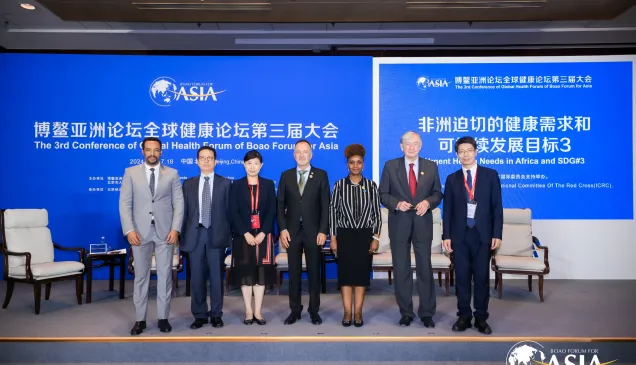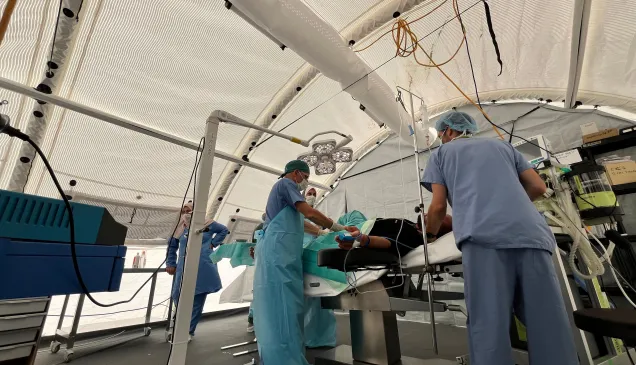Respect for ethics is central to protecting health care
On 3 October 2015, Médecins Sans Frontières' hospital in Kunduz, Afghanistan, was bombed. 30 people were killed – including 13 health-care workers – and 37 injured. MSF declares that Coalition and Afghan officials were informed of the hospital's location, and demands an official independent investigation into an attack that should never have happened.
Between January 2012 and December 2014, the International Committee of the Red Cross (ICRC) as part of the Health Care in Danger (HCiD) initiative recorded 2,398 incidents of violence against health-care services in 11 countries, with over 4,200 health-care workers assaulted, beaten, tortured, shot or killed while doing their work. If they are attacked, who then is left to provide care? We shouldn't have to ask ourselves that question. International humanitarian law (IHL) states that medical personnel, transports and facilities that are exclusively carrying out medical duties must be protected and respected.
When a doctor is killed or a nurse imprisoned for treating a wounded person from the "wrong side," it affects not only that doctor or that nurse but the very principle of humanity that IHL and the ethical principles of health care enshrine. But how can we ensure that the principle of humanity is upheld? Health-care professionals, be they civilians or soldiers, must know their rights and responsibilities and make sure all patients are treated on the basis of medical considerations only. But for this to happen, their medical ethics must also be respected by others.
The HCiD initiative, which is marking its 4th anniversary this year, has rightly made respect for medical ethics central to safeguarding health care. This newsletter covers just some recent achievements: the Model Unilateral Declaration, with which non-State armed groups can formally voice their commitment to respecting and protecting health care (page 3); the Liberian army's  updated training manual that includes operating procedures to safeguard health-care services (pages 4-5); and workshops for military medics on dealing with ethical dilemmas in the field, and thus ensuring the safety of patients (page 7).
updated training manual that includes operating procedures to safeguard health-care services (pages 4-5); and workshops for military medics on dealing with ethical dilemmas in the field, and thus ensuring the safety of patients (page 7).
This valuable work must continue. In December, representatives from governments and the International Red Cross and Red Crescent Movement will gather in Geneva for the International Conference of the Red Cross and Red Crescent. It will be an occasion for them to reaffirm their commitment to the principle of humanity, first made 151 years ago, and a golden opportunity to show that medical ethics matter.
Doris Schopper
Director of Geneva Centre for Education and Research in Humanitarian Action
Member of the International Committee of the Red Cross



